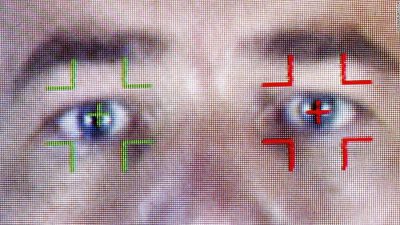Watchdog says FBI has access to more than 641 million ‘face photos’
The information released in prepared testimony from US Government Accountability Office homeland security and justice director Gretta Goodwin said the 641 million figure was accurate as of April 2019. In the release on Tuesday, the GAO said it had called on the Department of Justice and FBI to take further steps to improve privacy and “ensure the accuracy of its face recognition capabilities.”
The FBI’s available trove of photos contains some from its own face recognition system that includes photos from the criminal justice system, like mugshots, and others available from state and federal government databases, like driver’s license photos, the GAO said. The 641 million figure refers specifically “to photos, not the total number of identities,” according to Goodwin’s testimony.
The latest GAO information came out in a hearing before the House Oversight Committee on government use of facial recognition technology.
At the hearing on Tuesday, Ohio Rep. Jim Jordan appeared to express dismay over the lack of consent from people to have their photos available to the FBI and the lack of legislative action on the issue.
“We learned that over 20 states, 20 states, have given their bureau of motor vehicles, department of motor vehicles, the database — driver’s license database, they’ve just given access to that to the FBI,” Jordan, the committee’s top Republican, said. “No individual signed off on that when they renewed their driver’s license, got their driver’s licenses. They didn’t sign any waiver saying, ‘Oh it’s OK to turn my information, my photo, over to the FBI.’ No elected officials voted for that to happen.”
The hearing convened Tuesday came as facial recognition technology has continued to progress and some politicians have sought to catch up on the latest developments, with San Francisco banning facial-recognition technology last month while its use elsewhere proliferates.
Kimberly Del Greco, representing the FBI at Tuesday’s hearing, said in her testimony that facial recognition could “greatly enhance law enforcement capabilities and protect public safety,” while pledging the bureau’s commitment to “the protection of privacy and civil liberties.” Goodwin also said in her testimony that FBI face recognition assisted in the arrest of one of the FBI’s Ten Most Wanted fugitives in 2017.
Tuesday’s hearing followed a similar House Oversight review last month on the topic and a GAO report from three years ago that called on the Justice Department and FBI to take six steps to improve “privacy and accuracy” regarding facial recognition.
The GAO said “only one” of its recommendations had been fully addressed in the years since its 2016 report.
Goodwin noted in Tuesday’s testimony that “some academics and privacy advocates have questioned whether the technology is sufficiently accurate for this use.”
“In addition, the use of face recognition technology raises questions regarding the protection of privacy and individual civil liberties,” she said. (CNN)


